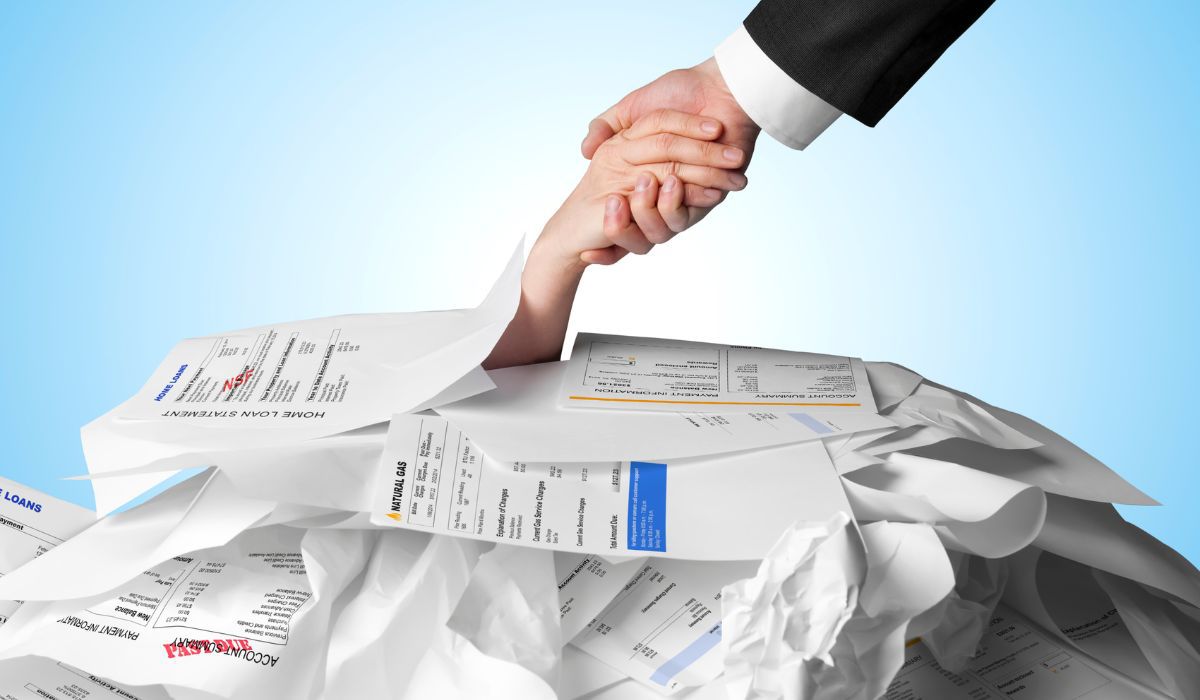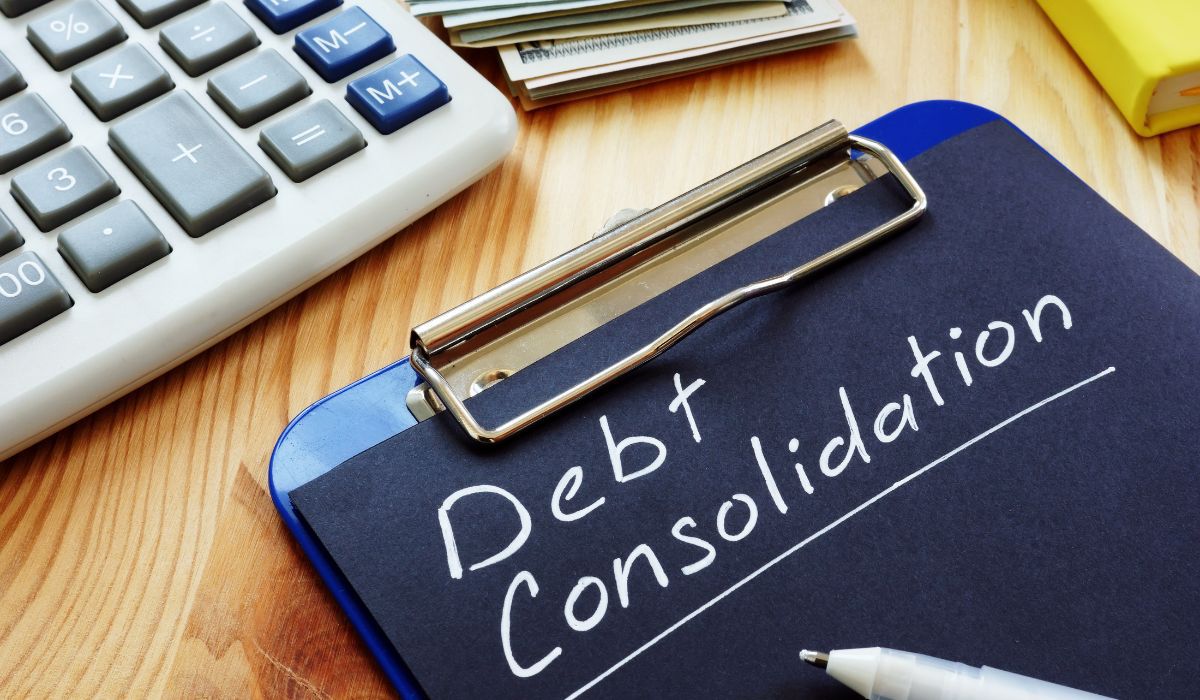Are you feeling overwhelmed by your growing debts? You’re not alone. Thousands of Singaporeans struggle with multiple loans, credit card bills, and other financial obligations that can quickly spiral out of control. It’s such an incredibly stressful situation that can take a toll on your mental health, and even relationships.
But don’t worry just yet. There is hope!
A Debt Consolidation Plan, also called as DCP, could be the ultimate solution you’ve been looking for.
Table of Contents:
- So What Is Debt Consolidation?
- When is a Debt Consolidation Plan a Good Idea?
- When is a Debt Consolidation Plan Not a Good Idea?
- Debt Consolidation Plan Case Study
- Who Is Eligible for the Debt Consolidation Plan?
- Cost of Debt Consolidation Plan in Singapore
- Other Frequently Asked Questions (FAQs) about Debt Consolidation Plans in Singapore
So What Is Debt Consolidation?

Imagine you’ve got a bunch of different debts. This can include credit cards or even personal loans that you took a couple of years ago. Dealing with this is like juggling a dozen balls at once which makes keeping track of all different payments and due dates extremely stressful.
With a debt consolidation plan, it’s like you’re trading in all those small worries for one big, easier-to-manage loan. It functions like a big debt cleanup – you swap the stress of multiple bills for the simplicity of one monthly payment. If you are lucky, you’ll save some cash on interest which is a great advantage.
So how does it work?
- First, you apply for a new loan, often called a debt consolidation loan, from a bank or lender. If they approve your application, you can use the money from this new loan to pay off all your existing debts..
- Instead of making separate payments to different lenders each month which can be confusing, you just need to settle one payment to your new lender. The goal is to get a lower interest rate on this new loan compared to what you were paying on your old debts so that more of your money goes toward paying off the principal and less goes toward interest.
- You need to keep making this single payment until your debt consolidation loan is completely paid off.
To apply for this loan, you need these documents:
- Copy of your NRIC
- Latest Credit Bureau Report
- Latest income documents
- Latest credit card and unsecured credit loan statements (physical or online)
- Confirmation letter showing unbilled principal balances for unsecured credit instalment plans (if any)
- Settlement notice from the original DC bank (only applicable to DCP refinancing applications)
When is a Debt Consolidation Plan a Good Idea?
A DCP can be a smart move in many situations, such as:
- You are already struggling with multiple debts with high interest rates. If you have several credit card balances or personal loans with sky-high interest rates, this loan will surely help you secure a lower, fixed interest rate.
- You cannot keep track of multiple due dates and payments anymore. When you consolidate debt, you will only have one monthly payment to manage. This will take a lot of stress out of your financial life and reduce the risk of missed payments.
- Your debt payments are eating up too much of your money. A DCP could give you much-needed breathing room. When you extend the repayment term, you may be able to lower your monthly payment to a more manageable level.
- You have a steady income and good credit. Before you can qualify for the best debt consolidation rates and terms, you will generally need a stable job and a solid credit history.
- You are really committed to breaking the debt cycle. Keep in mind this crucial thing – consolidation is a tool, not a magic wand. That said, it will not prevent you from getting into debt again if you continue the same spending habits that got you into trouble in the first place.
When is a Debt Consolidation Plan Not a Good Idea?
A DCP is not a one-size-fits-all solution. To help you know if it’s best for you, we’ve gathered some situations where consolidating your debts is not recommended:
- If your credit score is low, you might not be able to get a debt consolidation loan with a good interest rate compared to what you’re already paying on your debts. In this situation, consolidating could end up costing you more in the long run. Think about it this way – it will be like trying to put out a fire with gasoline.
- Another red flag is if you are not addressing the cause of your debt. Debt consolidation can make managing your payments easier, but, as stated above, it doesn’t magically solve the issues that got you into debt in the first place. Have a spending problem? Relying on credit to make ends meet too much? If so, consolidating your debts without changing your habits won’t fix this.
- People whose debts are small and manageable also don’t need debt consolidation. A good comparison for this context is like using a sledgehammer to hang a picture. It will get the job done for sure but it’s not necessary. If you can realistically pay off your debts within six months to a year by making some budget adjustments in your life, you don’t need it.
- Using your home’s equity to pay off high-interest debts might seem like a tempting idea. However, it’s safer to consolidate with an unsecured personal loan that doesn’t put your home on the line.
Debt Consolidation Plan Case Study
Singapore is seeing an increase in household debt levels. This has impacted Singaporeans from all walks of life, especially young adults, whose average debt rose during the pandemic. This proves the need for reliable debt management solutions.
To keep their heads above water, the Association of Banks in Singapore (ABS) introduced the Debt Consolidation Plan which is designed specifically for those with interest-bearing unsecured debt that’s more than 12 times their monthly income.
Let’s use the case of Person A for example. Person A has S$40,000 in outstanding balances across banks and money lenders.. This is because of two credit cards and one personal loan.
Person A is the only breadwinner for her family of three, and she even has to support her parents. Her monthly salary is $3,000, but after CPF deductions, she’s left with just $2,400 in take-home pay. With what she’s currently earning, she’s setting aside a minimum of S$1,275 every single month just for debt repayments – sometimes he even misses a few months.
If this keeps up, it would take Person A 8 to 10 years to clear his debts. That’s so long – and that’s not the only problem here. With the interest rates of 25% per year on her credit cards and on her personal loan, she’d be shelling out over $9,000 in interest alone each year because of the compounding effect on his outstanding balance.
So, should Person A take up the Debt Consolidation Plan? Absolutely.
Who Is Eligible for the Debt Consolidation Plan?

First up, you’ve got to be a Singapore Citizen or Permanent Resident. Next, you need to earn between $20,000 and $120,000 per year. That’s not all. Your Net Personal Assets (all your assets minus your liabilities) need to be less than S$2 million. If you are not sure what counts as an asset, gather up all your documents and the bank or financial institution will help you figure this one out.
Next, your total interest-bearing unsecured debt should be more than 12 times your monthly income. You can also only have one DCP active at a time, although, if you find a better deal with another bank after 3 months, you can refinance. Just keep in mind that some banks might charge an early termination fee for the hassle.
Let’s circle back to Person A, shall we? Does he qualify for the DCP?
Are her total debts more than 12 times her monthly salary? Yes, 13 times, to be exact.
Is her annual income between $20,000 and $120,000? Check.
Are her Net Personal Assets less than $2 million? Yes.
Does she have any other DCPs with other banks? No.
Considering this, it is likely that Person A can apply for a DCP, according to the Association of Banks in Singapore. This could be just the thing to help him get his debt under control.
Will a DCP Affect Your Credit Score in Singapore?
The short answer is yes – but don’t panic just yet. When you first take out this loan, your credit score might dip a little bit since credit scores favour long-standing debts that have been consistently paid off over time. When you start a new loan, even if it’s to pay off your current debt, this can cause a temporary drop.
That said, if you stick to your DCP repayment plan, your credit score will bounce back and even improve in the long run.Once you have completed the DCP, it stays on your credit report for just three years so its long-term benefits outweigh that temporary setback.
Cost of Debt Consolidation Plan in Singapore
Some banks, like OCBC, UOB, Citibank, and HSBC, are quite generous and don’t charge any processing fees at all. Others, like DBS and POSB, charge a low cost of S$99. There are also banks that charge higher.
Also think about the Annual Interest Rate (AIR) and Effective Interest Rate (EIR). The AIR is the rate the banks advertise, but the EIR includes all the extra costs, like service fees and admin charges, that come with your loan.
For example, OCBC might have zero processing fees, but their AIR is 4.50% (EIR can be as much as 8.41%) per year. Standard Chartered charges a S$199 processing fee, but their AIR is only 3.48% (EIR 6.50%) per year.
Other Frequently Asked Questions (FAQs) about Debt Consolidation Plans in Singapore
How long does it take to apply for a DCP?
This can vary depending on the bank and your individual circumstances. But once you have all the required documents ready, the application process can take anywhere from a few days to a couple of weeks.
Is it possible to pay off the DCP early?
Yes. Some banks may charge an early repayment fee for this, though.
What happens if a DCP payment is missed?
The debtor will be charged late payment fees, just like when loan payments are missed. When this happens, the credit score could be negatively impacted as well.
Can I still use my credit cards after getting a DCP?
This depends on the terms of your DCP. For some DCPs, you are required to close your existing credit card accounts. This will prevent further debt accumulation. But for others, you can keep your cards open with reduced credit limits.
Applying for a DCP Is Easier Than You Think
We get it- the idea of applying for a DCP can seem intimidating, especially if it’s your first time. But Lender SG can help you. With us, you can find best debt consolidation loan offers from multiple banks and licensed money lenders in just one click. This will make choosing the most favourable terms for your situation so easy. Find the best loan offer today!

